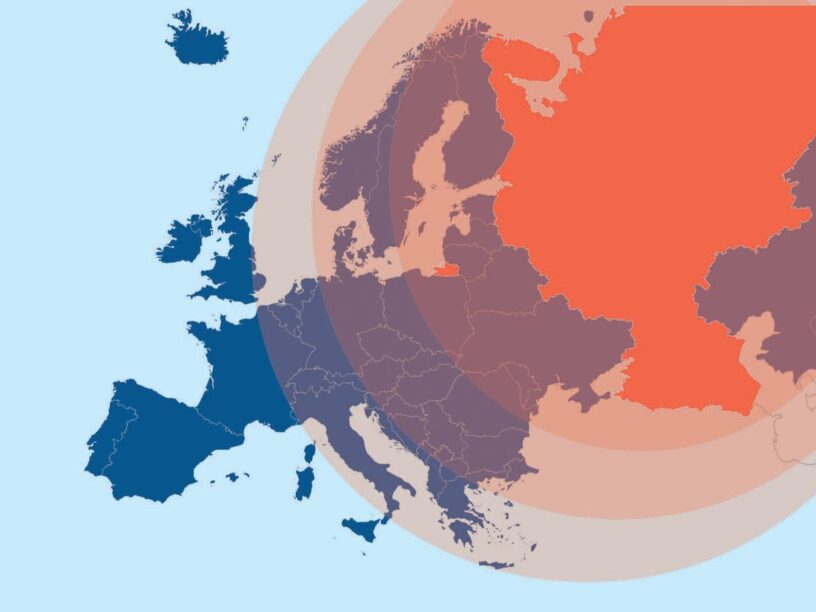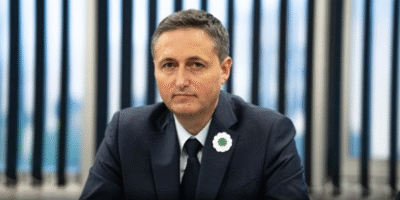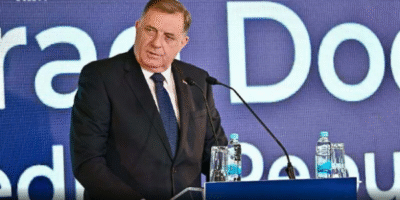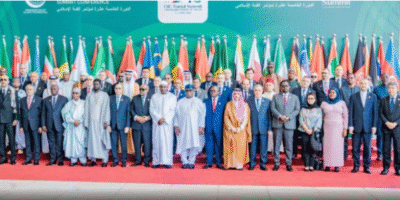As the War in Ukraine Rages, Bosnia and Herzegovina Becomes a New Front in Russia’s Attack on Europe, writes Ivana Stradner, an advisor at the Foundation for Defence of Democracies in Washington, for the British Telegraph. She argues that Putin sees an opportunity to expose Europe as a “paper tiger” incapable of resisting his moves. Therefore, she emphasizes that Europe should now turn the situation around and “expose the Kremlin as nothing more than an empty shell.”
Stradner explains in the Telegraph the current political context in Bosnia and Herzegovina, particularly due to the actions of the president of the Republika Srpska (RS) entity. She notes that U.S. Secretary of State Marco Rubio has condemned Dodik’s actions, the European Union has sent additional peacekeeping troops, and NATO Secretary General Mark Rutte has pledged “unwavering” support for Bosnia and Herzegovina’s territorial integrity.
Strengthening Russian Influence
The verdict against Dodik has sparked criticism from the governments of Serbia and Russia. Serbian President Aleksandar Vučić travelled to Republika Srpska to denounce the ruling as “shameful, illegal, and anti-democratic.”
Kremlin spokesperson Dmitry Peskov called the ruling a “purely politically motivated move.” Meanwhile, Russia’s Foreign Ministry stated that Moscow is trying to “neutralize threats to interethnic dialogue, peace, and stability” in the Balkans.
Dodik’s secessionist ambitions have been supported by Aleksandr Dugin, a Russian ultranationalist philosopher and Putin apologist. The Russian propaganda outlet RT quickly accused the United Kingdom of sending a spy plane to monitor Bosnia and Herzegovina.
“Moscow’s rhetorical engagement, backed by Serbia, suggests that the Kremlin sees an opportunity to exploit ethnic tensions to strengthen its influence in the Balkans,” Stradner writes.
“Putin is likely betting that Western powers want to avoid a new wave of violence, especially as they struggle to maintain support for Ukraine. For Vučić, meddling in Bosnia and Herzegovina further solidifies his power in Serbia—particularly as hundreds of thousands of anti-government protesters took to the streets of Belgrade last weekend,” she explains.
Stradner points out that the mandate and capacity of the European Union’s military mission in Bosnia and Herzegovina are limited and that “Putin, Dodik, and Vučić clearly believe that it poses no threat to their plans.”
Weaknesses on the Ground
The European response has been further complicated by Washington’s retreat from the continent.
However, Stradner argues that “Dodik is actually weak on the home front,” Vučić is facing mass protests, and Putin is preoccupied with Ukraine.
“At this moment, the EU and the UK could quickly secure a victory and show ‘who’s boss in this house.’ To stop Putin’s and Dodik’s plans, the UK and the EU must form a ‘coalition of the willing’ in the Western Balkans, increase their military presence, and deploy information operations teams to counter Russian propaganda,” she suggests.
“If Europe fails to respond adequately, the Western Balkans could once again descend into conflict. However, the West has the capacity to prevent this – if there is truly the will,” she concludes.
Written by our correspondent D.I.



